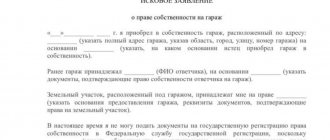Conscious actions of individuals or legal entities, as a result of which a change in rights in relation to a piece of real estate occurs, constitute real estate transactions. After its completion, the rights and obligations relating to the object are acquired, terminated, and transferred to another person.
Real estate transactions are considered valid if the legality of the actions of the parties who are legally and legally capable is observed. The following transactions are considered void:
- committed for purposes contrary to the law and order and moral standards of the Russian Federation;
- if the will of the parties does not coincide with reality;
- in case of non-compliance with state registration requirements.
The most common type of transaction is the purchase and sale of real estate. Other types:
- donation;
- men;
- rent a.
Since 2021, a law has been in force in the Russian Federation, according to which a number of real estate transactions must be carried out through a notary. These include the following:
- with shares in common property rights;
- on the alienation of real estate belonging to a minor or partially incompetent person;
- when buying and selling on the basis of trust management or guardianship;
- when dividing property acquired jointly by spouses.
Other types of transactions can be executed by a notary or in simple written form. The first option is the most reliable way to protect the rights of the parties and avoid problems in the future.
Procedural points
A notary is an impartial person, a professional who bears full financial responsibility for possible errors and ensures the legality of actions.
Legal support of real estate transactions in a notary's office is not only the certification of documents. When certifying a notary:
- identifies the parties;
- establishes the absence of defects of will;
- explains the essence of the agreement so that legal ignorance is not used to harm;
- checks the authenticity of the documents provided and the absence of encumbrances (seizure, pledge);
- submits documents to Rosreestr for registration of real estate transactions (at the request of the parties to the agreement).
The full list of notarial actions for this procedure includes many documents. In addition to the standard ones, our notary office offers a number of unique services:
- accelerated deadlines for registering property rights;
- secure settlement of the parties through a notary;
- sending documents to another city while maintaining their legal force.
The key difference between a notary and an intermediary or realtor is that he provides objective legal assistance and does not protect the interests of only one of the parties.
Notaries will be able to complete a transaction with an apartment in Rosreestr in a few minutes
According to the law, if a citizen formalizes a transaction with an apartment through a notary, then registration is free for him. Documents are sent by a notary to Rosreestr in electronic form.
“Let me remind you that now, according to the law, ownership rights under notarized transactions are registered in one business day,” said Konstantin Korsik. — Last year alone, notaries sent more than 2.4 million packages of applications for registration of rights under transactions to Rosreestr. And this procedure is now part of a single notarial act, that is, it is not charged separately. At the same time, we are already working with Rosreestr on the issue of automating the processing of documents and requests received from notaries. This will reduce the procedures for registering rights under a notarized transaction to a few minutes.”
Today, all notaries work in a “one window” format. The notary himself collects all the necessary information in advance and invites the parties to the transaction only to verify their real will and directly certify the agreement.
Additional security guarantees for the notary transaction are provided by the notary's public deposit account, to which the buyer transfers the money. The money will be securely stored in this account until the transfer of ownership is registered. Next, the notary himself ensures the transfer of funds to the seller. That is, there are no risks with cashing out money and third parties’ access to it, unlike the same safe deposit box.
The number of frauds is growing in the housing market; only contacting a notary will help you protect yourself.
Starting this year, you can use a notary deposit without a personal visit to a notary’s office - online, through the portal of the Federal Notary Chamber.
Konstantin Korsik also drew attention to such an important factor as the availability of notary fees. Several years ago, the legislator significantly reduced them in terms of certifying real estate transactions. At the same time, the cost of “legal support” for real estate transactions by various intermediaries (with often dubious qualifications) turned out to be noticeably more expensive.
Research generally shows a pattern where a reduction in the competence of a notary in certain types of transactions leads to an immediate increase in prices for legal services of third parties, often imposed on citizens.
This was discussed during the V All-Russian Legal Forum in Moscow.
Konstantin Korsik also noted the need to adopt a law on real estate activities as one of the measures to restore order in the real estate market. Today in Russia there is no clear definition of the profession of realtors, the range of their rights and responsibilities is not outlined, and there are no uniform requirements for their professional responsibility.
Consequences of signing a purchase and sale agreement in simple written form
Drawing up an agreement by hand is cheaper than notarization only at the initial stage. The following undesirable events may occur:
- documents are drawn up in one copy; if they are lost or damaged, restoration is impossible, which voids the transaction;
- there is no way to verify the accuracy of the data on the documents, since ordinary realtors do not have access to the databases of government agencies containing such information;
- there is no guarantee of legally correct execution of the contract, as a result of which it can be terminated unilaterally.
We invite you to our notary office seven days a week to complete real estate transactions. The list of required documents and the cost of the service can be found by phone or in the office.
Real estate transactions are subject to registration in cases provided for by the Civil Code of the Russian Federation (Clause 1, Article 164). Unlike notarization, which can be established by agreement of the parties (clause 2 of Article 163 of the Civil Code of the Russian Federation), the mandatory state registration is established only by law. The parties to the transaction do not have the right to establish or cancel mandatory state registration in accordance with the terms of the agreement.
Transactions subject to state registration can be divided into three groups: transactions with alienation (involving the transfer of rights), transactions without alienation (not entailing the transfer of rights to real estate), additional transactions to previously registered transactions (accessory).
1. Transactions with alienation:
a) contracts for the purchase and sale of a residential building, apartment, part of a residential building or apartment (clause 2 of Article 558 of the Civil Code of the Russian Federation), as well as shares in the right of common ownership of these real estate objects (Article 251 of the Civil Code of the Russian Federation), including the agreement and the acquisition of mortgaged residential premises by the mortgagee (Clause 3, Article 55 of the Federal Law “On Mortgage (Pledge of Real Estate)”);
b) contracts for the exchange of residential buildings, apartments and their parts (clause 2 of Article 567 of the Civil Code of the Russian Federation), as well as shares in the right of common ownership of them (Article 251 of the Civil Code of the Russian Federation);
c) contracts for the donation of real estate (residential or non-residential purposes) (clause 3 of Article 574 of the Civil Code of the Russian Federation), shares in the right of common ownership of them (Article 251 of the Civil Code of the Russian Federation), including donations (Article 582 of the Civil Code of the Russian Federation);
d) rent agreements with the transfer of real estate for the payment of rent, including agreements for lifelong maintenance with dependents (Article 584, paragraph 2 of Article 601 of the Civil Code of the Russian Federation);
e) lease-purchase agreements (Article 624 of the Civil Code of the Russian Federation);
f) contracts for the sale of an enterprise as a property complex (clause 3 of Article 560 of the Civil Code of the Russian Federation), including in the process of privatization of state and municipal enterprises (clause 1 of Article 28 of the Federal Law of July 21, 1997 No. 123-FZ “On Privatization” state and on the basis of privatization of municipal property in the Russian Federation" (see other editions), bankruptcy procedures (Article 86 of the Federal Law of January 8, 1998 No. 6-FZ "On Insolvency (Bankruptcy)").
When making transactions involving the alienation of real estate, two registration actions are performed: registration of the transaction itself (confirmed by a stamp on the agreement) and registration of the ownership rights of the acquirer-buyer, the changing recipient, the rent payer (confirmed by a Certificate of Registration of Rights).
2. Transactions without alienation:
a) lease agreements:
- land plots, residential premises (by legal entities) - regardless of the period (clause 2 of article 609, clause 2 of article 671 of the Civil Code of the Russian Federation); — buildings, structures, non-residential premises and land plots for a period of at least 1 year (clause 2 of Article 651 of the Civil Code of the Russian Federation), as well as lease for an indefinite period; — enterprises as property complexes (clause 2 of Article 658 of the Civil Code of the Russian Federation);
— sublease agreements (clause 2 of Article 615 of the Civil Code of the Russian Federation), to which the above rules on lease agreements apply;
b) agreements for the free use of forest fund areas (Article 36 of the Forest Code of the Russian Federation of January 29, 1997 No. 22-FZ, clause 6 of the Regulations on the provision of forest fund areas for free use, approved by Decree of the Government of the Russian Federation of February 18, 1998 No. 224).
c) agreements on the pledge of real estate (mortgage) (clause 3 of article 339 of the Civil Code of the Russian Federation, clause 2 of article 10 of the Federal Law of July 16, 1998 No. 102-FZ “On mortgage (mortgage of real estate)”), including pledge of the right to lease real estate (Clause 5, Article 5 of the Mortgage Law);
To conclude these agreements, one registration action is performed - registration of the transaction (confirmation is a stamp on the agreement).
Please note that a pledge is a transaction without alienation. The transfer of property as collateral does not entail the termination of rights to it. Even if the debtor has not fulfilled the obligation secured by the pledge, the property pledged by him can pass to the pledgee only on the basis of a new transaction, for example, an agreement to purchase the pledged residential premises, but not on the basis of a pledge agreement.
3. Additional (accessory) transactions (transactions concluded in order to change or terminate previously registered real estate transactions):
a) assignment of claims under a registered transaction (Article 389 of the Civil Code of the Russian Federation);
b) transfer of debt under a registered transaction (Article 391 of the Civil Code of the Russian Federation);
c) agreement to amend a registered agreement (clause 1 of Article 452 of the Civil Code of the Russian Federation);
d) agreement to terminate the registered contract (clause 1 of Article 452 of the Civil Code of the Russian Federation);
e) an agreement to provide compensation for a registered transaction (Article 409 of the Civil Code of the Russian Federation);
f) refusal of the donee to accept the gift (Article 573 of the Civil Code of the Russian Federation) (possible only before the transfer of the gift or gift agreement in the future);
g) agreement of the parties on the novation of an obligation under a registered agreement (Article 414 of the Civil Code of the Russian Federation).
Additional transactions are made, as a rule, in the same form as the main ones. For example, if a purchase and sale agreement is notarized, then the agreement to terminate or amend it, assignment of a claim or transfer of debt under this agreement must also be notarized.
A right that arose before the Law on State Registration of Rights came into force and has not ceased at the moment can be registered at the request of the copyright holder with the issuance of a Certificate of State Registration. Previously concluded and properly executed agreements do not require additional registration as a transaction, even at the request of the parties. State registration of a transaction is currently a necessary condition for its conclusion; the moment of registration is the moment of concluding an agreement. Why register a transaction today if it was properly concluded earlier before the State Registration Law came into force? Moreover, as a rule, today the transaction (agreement) has ceased to be valid and, accordingly, can no longer be registered. For example, in 1994, a purchase and sale agreement for a residential building was concluded, notarized and registered with the BTI in accordance with the procedure in force at that time. The buyer became the owner of the house from the date of registration of the agreement with the BTI, the relations of the parties under this agreement ceased, this transaction is not subject to registration (it is impossible to remain a seller or buyer for the rest of your life!). In this case, only registration of the buyer's existing ownership rights is possible. And if a citizen intends to sell previously acquired real estate, then he must register only the existing right, but not the 1994 agreement.
Deputy Head of Department
registration of transactions with
real estate objects A.R. Grigoryan
Price
| Notarial action | Notary fee | UPTH |
| Providing documents for state registration | ||
| a) rights to real estate (Article 86.2 of the Fundamentals) | 1,000 rub. | No charge |
| b) legal entity and individual entrepreneur (in electronic form) (Article 86.3 of the Fundamentals) | 100 rub. for 1 page of scanning, transmitted documents, but not more than 1,200 rubles. | |
UPTH is a legal technical work approved by the Moscow City Notary Chamber.
The case of a long-standing demand for registration of transfer of rights
Why I really like Ek. Collegium of the Supreme Court is that in the field of real estate law it consistently adheres to the so-called. principle of entry: no entry in the register of rights to real estate - no right.
You can conclude a contract for the purchase and sale of an immovable thing, you can even execute it (pay the price, transfer the property to the buyer), but the record of ownership is not made in the name of the buyer, he does not acquire ownership rights.
There is a point of view that in relations with the seller, the buyer becomes the owner from the moment the contract is concluded.
In my opinion, this view is incorrect both from the point of view of the law (Clause 2 of Article 8.1 of the Civil Code of the Russian Federation) and dogma. The right of property is an absolute right, which is opposed to all persons subject to a given legal order.
What they propose to call “the property of the buyer, opposed only to the seller” does not fall under this definition. Therefore, it cannot in principle be a property right.
Undoubtedly, the seller cannot, citing the fact that there is no record of the buyer’s ownership in the register, perform any actions against him (the buyer) that would infringe on the buyer’s interest in acquiring ownership. But this is due to the existence of a valid contractual connection (arising from the purchase and sale agreement), by virtue of which the seller is OBLIGED to provide the buyer with property. Well, or the principle of objective integrity, in the end.
In case No. 305-ES20-2700, the buyer, who did not become the registered owner of the purchased item, went to the seller with a claim for recognition of ownership of the subject of the contract. For some reason, the courts upheld this claim, although in paragraphs 58 and 59 of PP 10/22 the position had long been formulated: a claim for recognition is a claim for recognition of a property right that EXISTS at the time the claim is filed.
The Supreme Court canceled the acts and sent the case for a new consideration, explaining the ASGM, 9AAS and FASMO, in general, the truism and proposing to actually consider this dispute as a dispute about the state registration of the transfer of ownership of the subject of sale.
Considering that the purchase and sale agreement between the plaintiff and the defendant was concluded in 2007, the issue of limitation of actions is expected to arise in the case in the new round.
And this puts the buyer in a very delicate position, which would be interesting to discuss.
I don’t know how the provisions of the agreement regarding the deadline for filing an application with Rosreestr were formulated. I think that if there was no special period for such treatment, then the ten-year limitation period should be applied to the seller’s obligation to transfer the property as to any demand demand obligation (paragraph 2, paragraph 2, article 200 of the Civil Code of the Russian Federation). If this deadline is missed, then all we can do is feel sorry for the buyer and ask him to wait for the expiration of the acquisition statute of limitations.
If there is a deadline for applying to Rosreestr in the contract, and it was missed for reasons related to the buyer himself, then there is even less reason to defend it, let him again wait for the expiration of the acquisition statute of limitations. Moreover, the requisite of good faith from Art. 234 of the Civil Code has actually been disavowed by judicial practice today.
If there is a deadline for appeal, and it was missed for reasons related solely to the seller, then his statement of limitation can be attempted to paralyze clause 4 of Art. 1 and Art. 10 of the Civil Code of the Russian Federation on unfair behavior. But it’s the nuances of the case that are important here.
But in any case, do what the buyer did in this case ek. collegium (it is impossible to file a claim for recognition of ownership of the object of sale, and to fight off the objection to the limitation period by citing the fact that there is no limitation period for claims for recognition when the plaintiff owns the immovable thing).









